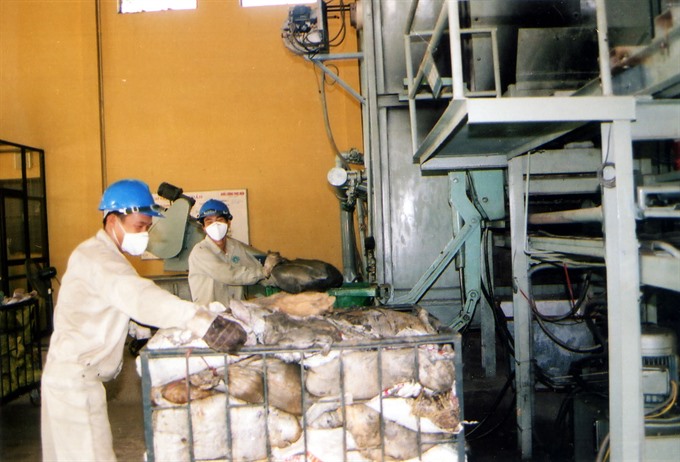 Society
Society

Prime Minister Nguyễn Xuân Phúc has approved a plan for solid waste management in key economic zones in the north until 2030.
 |
| A solid waste burning kiln invested by Hà Nội’s Transport Ministry, with total investment of VNĐ20 billion (US$889,000). A plan for solid waste management in key economic zones in the north until 2030 has just been approved. — VNA/VNS Photo Bùi Tường |
HÀ NỘI — Prime Minister Nguyễn Xuân Phúc has approved a plan for solid waste management in key economic zones in the north until 2030.
The vital economic zones are the administrative boundaries of seven provinces and cities, including Hà Nội, Bắc Ninh, Hưng Yên, Hải Dương, Vĩnh Phúc, Hải Phòng and Quảng Ninh.
The plan estimates that the total amount of solid waste released until 2020 will reach nearly 39,000 tonnes per day, including 2,940 tonnes of harmful waste.
In the period from 2021-2030, the figure is forecast to amount to more than 59,600 tonnes per day, including more than 4,300 tonnes of toxic solid waste.
In order to treat such an amount of solid waste, a waste treatment plant will be built in Sóc Sơn District of Hà Nội, covering 257ha with a capacity of around 6,000 tonnes per day. The plant will receive and treat normal solid waste for Hà Nội and harmful waste for Hà Nội, Vĩnh Phúc, Bắc Ninh and Hưng Yên.
The plan will also define five other solid waste treatment facilities at the provincial level to provide treatment services for localities with a capacity of 11,500 tonnes per day.
Under the plan, solid waste treatment facilities must meet certain standards, such as being located to ensure environmental safety and having measures to mitigate impacts on the environment.
According to a report from the Centre for Environmental Monitoring Portal, under the Việt Nam Environment Administration, solid waste from big cities and industrial zones stood at the highest level, some 50.8 tonnes, or 22.1 per cent of the country’s total.
Vietnamese people in urban areas account for about 35 per cent of the total population, and are responsible for the discharge of some 32,000 tonnes of solid waste into the environment per day, the report said.
The report, released in late 2015, said in 2014 alone, about 84.5 per cent of solid waste had been treated, an increase of 3 per cent compared to 2010.
Furthermore, 26 solid waste disposal factories, on a total area of 342ha and with a capacity of 6,015 tonnes per day, were set up in the past six years.
Expenditure for the treatment of solid waste is partly paid by the Government. Currently, it provides support of between VNĐ240,000-400,000 (roughly US$11 to 18) per tonne for waste treatment.
Financial support has also been received from the urban hygiene fund and private investment. — VNS




